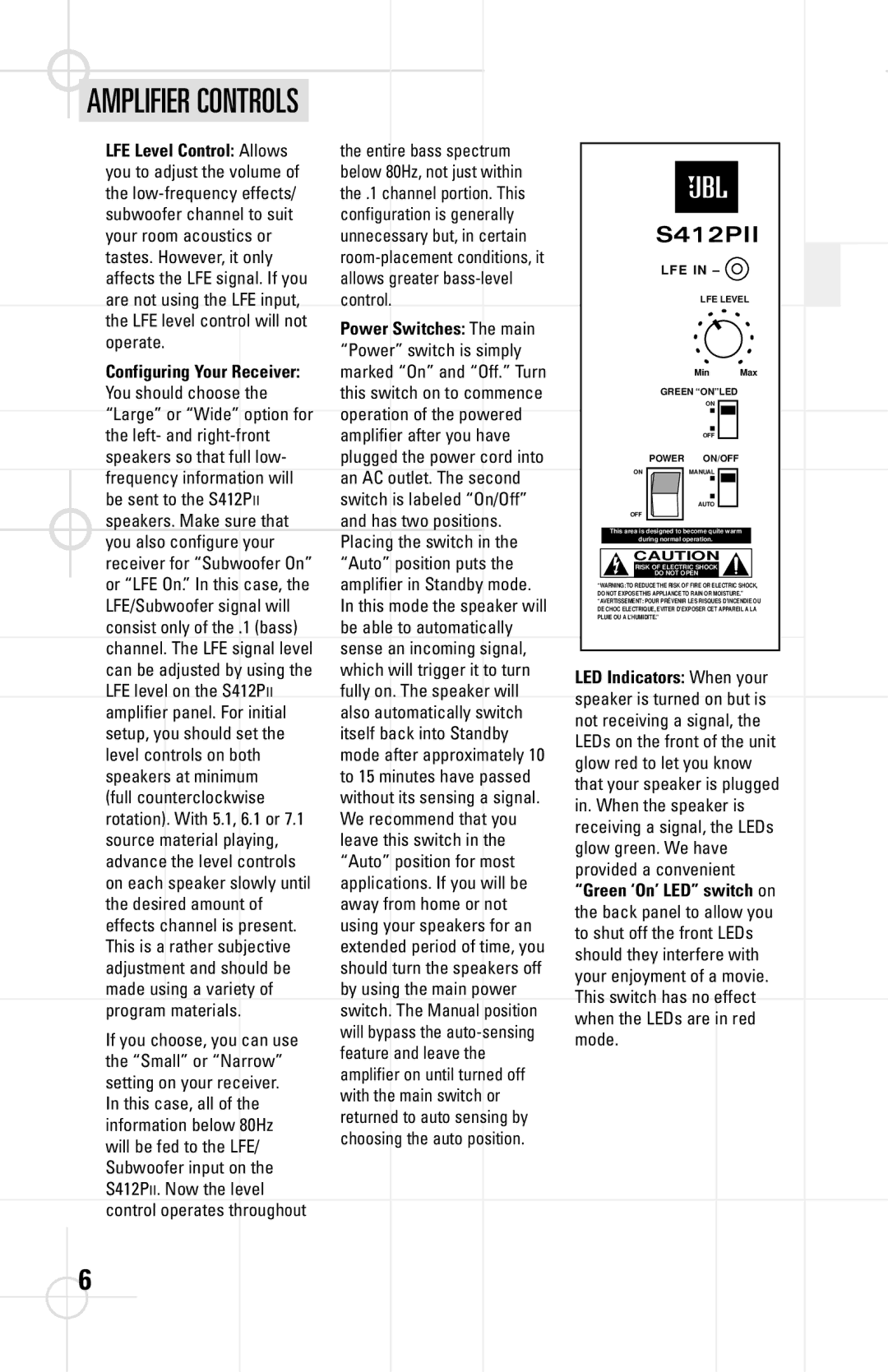
AMPLIFIER CONTROLS
LFE Level Control: Allows you to adjust the volume of the
Configuring Your Receiver: You should choose the “Large” or “Wide” option for the left- and
(full counterclockwise rotation). With 5.1, 6.1 or 7.1 source material playing, advance the level controls on each speaker slowly until the desired amount of effects channel is present. This is a rather subjective adjustment and should be made using a variety of program materials.
If you choose, you can use the “Small” or “Narrow” setting on your receiver. In this case, all of the information below 80Hz will be fed to the LFE/ Subwoofer input on the S412PII. Now the level control operates throughout
6
the entire bass spectrum below 80Hz, not just within the .1 channel portion. This configuration is generally unnecessary but, in certain
Power Switches: The main “Power” switch is simply marked “On” and “Off.” Turn this switch on to commence operation of the powered amplifier after you have plugged the power cord into an AC outlet. The second switch is labeled “On/Off” and has two positions. Placing the switch in the “Auto” position puts the amplifier in Standby mode. In this mode the speaker will be able to automatically sense an incoming signal, which will trigger it to turn fully on. The speaker will also automatically switch itself back into Standby mode after approximately 10 to 15 minutes have passed without its sensing a signal. We recommend that you leave this switch in the “Auto” position for most applications. If you will be away from home or not using your speakers for an extended period of time, you should turn the speakers off by using the main power switch. The Manual position will bypass the
S412PII
LFE IN – |
| |
| LFE LEVEL | |
| Min | Max |
GREEN “ON”LED |
| |
| ON |
|
| OFF |
|
POWER | ON/OFF |
|
ON | MANUAL |
|
| AUTO |
|
OFF |
|
|
This area is designed to become quite warm
during normal operation.
CAUTION
RISK OF ELECTRIC SHOCK
DO NOT OPEN
“WARNING: TO REDUCE THE RISK OF FIRE OR ELECTRIC SHOCK, DO NOT EXPOSE THIS APPLIANCE TO RAIN OR MOISTURE.” “AVERTISSEMENT: POUR PRÉVENIR LES RISQUES D’INCENDIE OU DE CHOC ELECTRIQUE, EVITER D’EXPOSER CET APPAREIL A LA PLUIE OU A L’HUMIDITE.”
LED Indicators: When your speaker is turned on but is not receiving a signal, the LEDs on the front of the unit glow red to let you know that your speaker is plugged in. When the speaker is receiving a signal, the LEDs glow green. We have provided a convenient “Green ‘On’ LED” switch on the back panel to allow you to shut off the front LEDs should they interfere with your enjoyment of a movie. This switch has no effect when the LEDs are in red mode.
